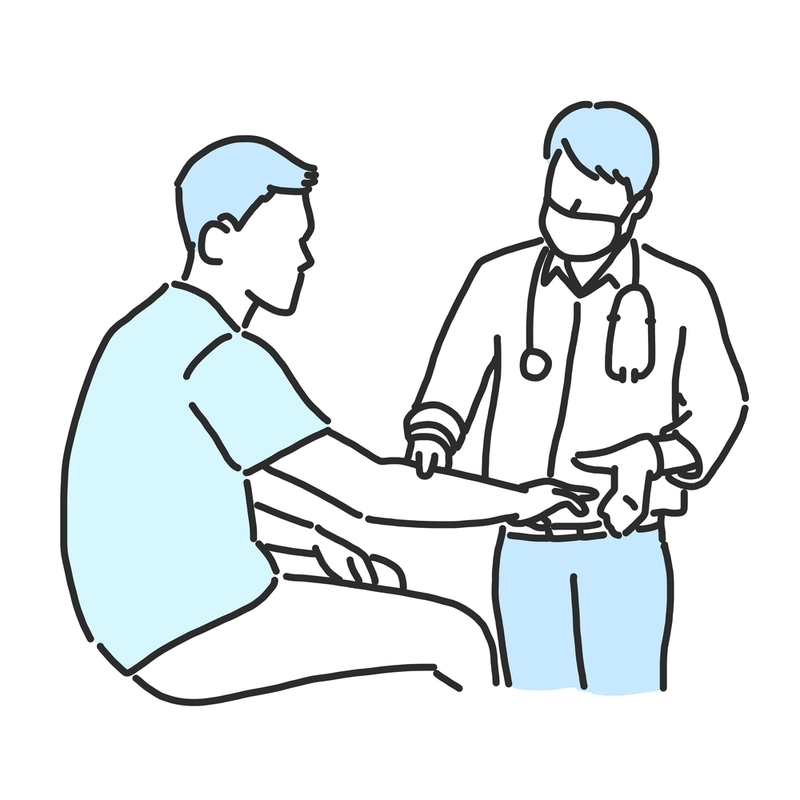Do doctors work when they are unwell?
M3 India Newsdesk Nov 29, 2017
Working while ill can have disastrous implications especially for healthcare professionals.

According to WHO, hospital-acquired infections account for 2 million cases and about 80,000 deaths a year around the globe. Among the many ways, through which patients can contract a hospital-acquired infection, getting it from a sick healthcare professional is the most avoidable factor. Despite this fact, many healthcare professionals continue to work when sick, putting their colleagues and patients at a risk. Many studies have been performed to study why healthcare professionals work when not well.
A survey conducted on 474 physicians at an academic hospital in California found that 96 % of physicians would work if they had cold, 77% would work if they experience diarrhea, and 54% said they would work if they had vomiting.
An alarming 36% of the physicians said they would work even if they were diagnosed with flu, despite knowing the contagiousness of flu. Most physicians feel fever as a minor symptom, and 50 % said they would work if they had a fever between 101 and 103 degrees Fahrenheit and 25 % said they would work with a fever higher than 103 degrees Fahrenheit.
Working frequency of various healthcare professionals with flu
An online survey conducted in the United States during the flu season in 2014-2015 found that out of 1914 HCPs, 414 experienced a flu-like illness, of which 41.4 % worked for a median duration of 3 days.
Among clinical professional HCPs, pharmacists (67.2%) and physicians (63.2%) had the highest frequency fo working while sick, followed by assistants and aides (40.8%), nonclinical HCP (40.4%), nurse practitioners/physician assistants (37.9%) and other clinical HCP (32.1%).ants, pharmacists, assistants/aides and clinical and nonclinical healthcare practitioner.
Reason why healthcare professionals work when sick
Though it is complex to understand why healthcare professional works when sick, this culture of working sick among doctors and other healthcare professionals is worrisome.Some reasons, which may lead the healthcare professionals to this are cited here.
Lack of sick relief system
Many hospitals/clinics have no sick relief system or it is not functional due to limited staff. So, the healthcare professionals are compelled to come even when ill.
Inadequate coverage of healthcare services
Limited staff in hospitals makes finding a substitute difficult. Even if they find someone, physicians need to answer queries on phone. So, physicians feel it is better to be present in the hospital and work rather than answering queries.
Lack of Flexibility
Due to workload, there is no flexibility. Appointments are made months before and in some cases, the patients may travel long distances for the consultation. So, it becomes difficult to take a leave, to avoid inconvenience, provide treatment and to achieve the desired number of patients.
Social and cultural norms
A strong cultural norm in the hospital is to work until very ill. It is believed that taking a sick leave is unprofessional. Moreover, the healthcare professionals are also concerned about not burdening their colleagues by asking them to cover their shift. Healthcare professionals fear dislike from colleagues for taking sick leave.
Many healthcare professionals work when sick ignoring the risk of disease transmission and adverse effect on their health. However, they should follow their own advice, “stay home when sick” for their, staff and patients’ betterment. Earlier studies suggested that on exposure to a sick healthcare professional, the patients are five times more likely to get a healthcare-associated infection. A support system must be designed for healthcare professionals to keep them safe as well as patients and coworkers. It can be done by creating a sick leave policy and maintaining adequate staff.
Reference: Chiu S, Black CL, Yue X et al. Working with influenza-like illness: Presenteeism among US healthcare personnel during the 2014-2015 influenza season. American journal of infection control. Nov 2017. (45) pg 1254–1258.
-
Exclusive Write-ups & Webinars by KOLs
-
Daily Quiz by specialty
-
Paid Market Research Surveys
-
Case discussions, News & Journals' summaries